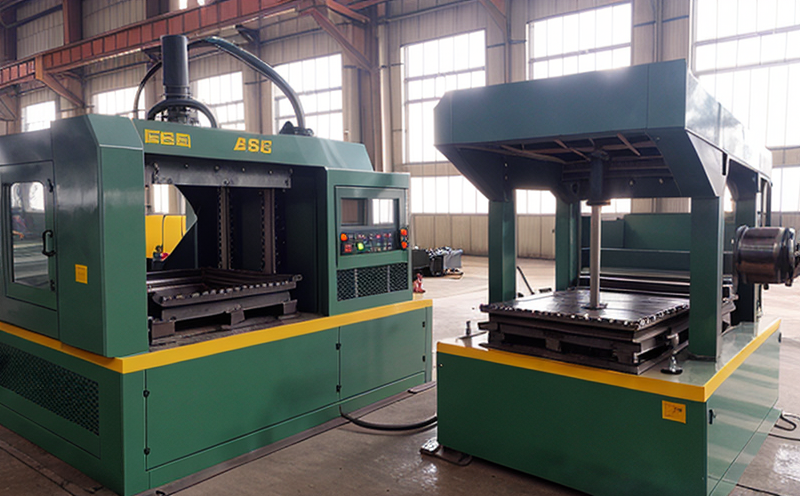DIN 50191 Compression Testing of Forged Materials
The DIN 50191 compression testing standard is specifically designed to evaluate the mechanical properties and structural integrity of forged materials. This test method plays a crucial role in ensuring that these materials meet quality standards, are reliable under stress, and can withstand the rigors of industrial applications.
Forged materials, such as steel, aluminum, and titanium alloys, are widely used in various sectors including automotive, aerospace, construction, and manufacturing. These parts often undergo severe mechanical stresses during their lifecycle, making it essential to validate their strength and durability through rigorous testing. The DIN 50191 test provides a standardized approach to this validation by subjecting the material specimens to controlled compression forces.
The process begins with precise specimen preparation according to the standard's specifications. This includes ensuring that the surface is free from defects, burrs, or other irregularities that could influence the test results. Once prepared, the specimens are subjected to a series of compressive loads in accordance with the prescribed protocol. The testing machine used for this purpose must be calibrated and maintained to ensure accuracy.
The acceptance criteria for DIN 50191 include specific yield strength values and elongation percentages that the material must meet or exceed. These parameters are critical as they directly impact the performance of the final product. For instance, in automotive applications, exceeding these criteria can lead to premature failure or reduced lifespan of components like engine blocks or transmission parts.
The test results provide valuable insights into the material's behavior under load, which is vital for improving manufacturing processes and ensuring compliance with international standards. By adhering to DIN 50191, manufacturers can enhance product quality, reduce rework costs, and improve overall efficiency in their supply chains.
In summary, the DIN 50191 compression test is an essential tool for quality managers and R&D engineers who strive for excellence in forged material production. It ensures that materials are robust enough to meet the demands of industrial applications while maintaining high standards of reliability and performance.
Applied Standards
The DIN 50191 compression test is part of a broader suite of mechanical testing methods used in industrial manufacturing. Other relevant standards include ISO 6892-3:2017, ASTM E8M-18, and EN 14613:2004. These standards provide comprehensive guidelines for various aspects of material testing, from sample preparation to result interpretation.
ISO 6892-3 focuses on the mechanical testing of metals, while ASTM E8M is specifically aimed at wrought iron products. EN 14613 covers the mechanical testing of nonferrous metals and alloys. Together, these standards form a robust framework for ensuring that materials are suitable for their intended uses.
The compliance with DIN 50191 ensures that manufacturers adhere to stringent quality control measures. This is particularly important in sectors like aerospace, where even minor deviations can have catastrophic consequences. By following this standard, companies demonstrate their commitment to excellence and reliability in material testing.
Industry Applications
- Aerospace: Ensuring the longevity of critical components such as engine parts.
- Automotive: Testing materials used in high-stress applications like transmission gears.
- Construction: Evaluating structural integrity of large steel components.
- Machinery Manufacturing: Assessing wear resistance and durability of machine parts.
The results from DIN 50191 testing are invaluable for these industries, as they provide a clear picture of the material's performance under stress. This information is crucial for optimizing design processes, selecting appropriate materials, and ensuring product safety.
Eurolab Advantages
EuroLab offers comprehensive services that cater to the unique needs of industrial manufacturing and processing testing. Our state-of-the-art facilities and experienced team ensure accurate and reliable test results.
- Precision Calibration: Our equipment is regularly calibrated to international standards, ensuring consistent and precise measurements.
- Comprehensive Reporting: We provide detailed reports that include not only the test results but also recommendations for improvement.
- Experienced Staff: Our team of engineers and technicians are experts in their field, bringing deep knowledge to every project.
- Fast Turnaround: We understand the importance of timely results and strive to deliver reports within short timelines.
EuroLab's commitment to excellence is reflected in our continuous improvement efforts. We invest heavily in research and development to stay at the forefront of testing technology and methodology.





